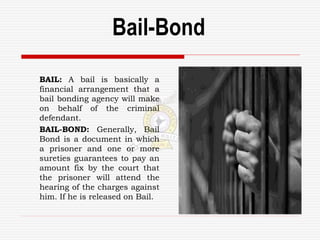Hassle-free Bail Bonds Near Dayton - Trusted Resident Providers
Hassle-free Bail Bonds Near Dayton - Trusted Resident Providers
Blog Article
Navigating the Lawful Maze: Bail Bonds Explained for Beginners
Navigating the intricacies of the legal system can often seem like going across an overwhelming labyrinth, particularly when it comes to comprehending Bail bonds. For newbies entering this strange terrain, comprehending the ins and outs of Bail bonds is vital in making sure a educated and smooth procedure. From the essentials of exactly how Bail bonds function to the numerous types offered, each element plays a crucial duty in promoting the release of individuals awaiting test. As we dig much deeper right into this subject, quality will certainly be lost on the bail bond process, the connected prices, and valuable tips for successfully involving with bondsman.
Fundamentals of Bail Bonds
Understanding the basic principles of Bail bonds is necessary for navigating the legal process successfully and properly. Bail bonds offer as an economic guarantee that an accused will appear in court as required. When an individual is jailed, they might be approved the opportunity to upload Bail in order to protect their release until their court day. If the individual can not manage the complete Bail quantity established by the court, a bail bond agent can be enlisted to offer the essential funds on their behalf.
Essentially, a bail bond is a contract in between the defendant, the court, and the bail bond agent. The representative concurs to pay the full Bail amount if the offender falls short to appear in court, in exchange for a non-refundable fee generally set at 10% of the total Bail.
Kinds Of Bail Bonds
The most usual kind is a cash bond, where the accused or a relative pays the complete Bail amount in cash money. One more choice is a surety bond, where a bail bondsman pays the Bail on behalf of the defendant for a charge, typically around 10% of the overall Bail amount. Comprehending these various types of Bail bonds can aid people navigate the legal procedure extra effectively.
Bail Bond Process Explained
If the accused can not afford the full Bail quantity, they can seek the solutions of a bail bondsman. The defendant or their loved ones pay the bail bondsman a non-refundable charge, usually a percentage of the overall Bail quantity, to safeguard a bail bond.

Recognizing Bail Bond Costs
Upon securing a bail bond via a bail bondsman, people encounter an important element of the lawful procedure: the economic commitments linked to the bail bond. Bail bond prices typically include a non-refundable charge, generally around 10% of the total Bail amount set by the court. As an example, if the court sets Bail at $10,000, the bail bond costs will be $1,000. This fee is the bondsman's cost for posting the complete Bail amount and assuming the danger if the defendant stops working to show up in court.
Along with the costs, security might be required to protect the bail bond. Collateral can be in address the type of residential property, useful properties, or a co-signer who guarantees payment if the defendant skips Bail. The security works as a backup plan for the bail bondsman in situation the offender absconds.
It's critical for people looking for Bail bonds to totally understand the expenses involved and the terms of the agreement before proceeding. By being notified regarding bail bond prices, people can browse the legal process a lot more properly and make educated choices.
Tips for Dealing With Bail Bondsmen

Additionally, it's necessary to offer exact information about the offender and their instance. This includes information such as their full name, date of birth, the place of their arrest, and the charges they are dealing with. bail bond company dayton ohio. Offering incorrect or incomplete details can cause hold-ups in the bail bond procedure

Final Thought
In verdict, understanding the basics of Bail bonds, the different types available, the process involved, and the costs related to them is important for browsing the legal system. By functioning with bondsman and complying with these ideas, people can make certain a smoother and more efficient Bail process. When dealing with Bail bonds to stay clear of any kind of unneeded problems Get the facts or misunderstandings., it is essential to be informed and experienced.
Essentially, a bail bond is an agreement between the defendant, the court, and the bail bond agent. Another option is a surety bond, go where a bond bondsman pays the Bail on behalf of the accused for a charge, normally around 10% of the overall Bail quantity. The offender or their loved ones pay the bail bondsman a non-refundable fee, generally a percentage of the total Bail amount, to safeguard a bail bond.Upon securing a bail bond via a bondsman, people experience an important facet of the legal procedure: the monetary commitments connected to the bail bond. Bail bond costs commonly include a non-refundable fee, typically around 10% of the overall Bail amount established by the court.
Report this page